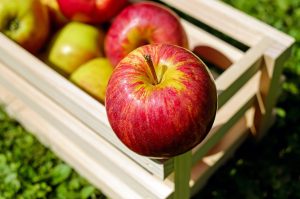
I am all for organic food, farmer’s markets, and healthier living. Most foods of convenience are full of preservatives, calories, sugar, or trans fatty acids. I would rather reach for a hamburger than steamed vegetables, but I am getting better at it. Now I find myself in the conventional versus organic dilemma. Should I pay more for organic food that decays fasters and costs more than conventional food?
It’s the healthier way to go. Also, you won’t pay that much more for organic produce over conventional produce if you know where to shop. If you comparison shop locally, you may be able to find relatively affordable organic produce. However, as is the case with human nature, it is easier to take convenience for granted.
Taking Convenience for Granted
People buy bottled water at an inflated cost. Sometimes as high as $7 a gallon depending on the brand and frequency of purchase. Most people reuse the same bottles they buy, which is a proven health hazard. Meanwhile, they can just buy a home water filter for $20 to $40 bucks and filter tap water.
It’s the same issue with conventional produce. Conventional produce is grown on large farms and frequently doused with pesticides. The produce you buy at the supermarket may have been in cold storage up to 14 months before you bought it. There is no conclusive data about the long-term effects on people eating pesticide-laden produce. However, no one thinks there are good effects.
The fact of the matter is that buying conventional produce is convenient. It’s convenient and cost effective for supermarket chains to transact with industrial farms than many small-scale organic farmers. So, I want to share the pros and cons of buying conventional and organic produce.
Pesticides
The main problem with conventional produce is that they are treated and soaked with pesticides during growth. This is done to protect crops from infestations, rodents, and pests. And, to realize their full profit potential. The effects of pesticide consumption on human beings is not given much scrutiny. Also, most people are aware of pesticide use yet still buy conventional produce.
Apples are number three of the most eaten conventional fruits, with oranges and grapes coming before it. However, apples are sprayed with more pesticide than most other produce. Apples are grown all over the U.S., but over 60% of them are grown in Washington state. Over 81% of apple orchards are sprayed with pesticides like organophosphates, carbamates, pyrethroids, just to name a few.
Your Apples Are Old
The apples, oranges, grapes, and stone fruits that you buy at the supermarket may have spent over a year in cold storage. The term, “in season,” may apply to farmer’s markets and organic produce, but the term does not exist when it comes to conventional produce. The apple harvest, for example, runs from August to November.
After that, they are kept in cold storage in temperatures as low as 32 degrees, and at lower oxygen levels. This is done to protect their financial potential as a market commodity and to delay decomposition. Unprotected and untreated apples will rot within days. If you are worried about how this affects the taste, this isn’t a new practice.
You have been eating old, stored fruits for a long time. A lot of these stored fruits are processed into pies, juices, and dried fruits as well.
The Organic Route
Organically grown produce have not been treated with pesticides, fossil-fuel based fertilizers, or bioengineered for growth potential. They taste better and are relatively safer than conventional produce. However, they decay much faster than conventional produce. Also, organic farmers don’t have the same ease of access to consumers that corporate supermarkets do.
That doesn’t mean that you don’t have any access to them. The issue is that you will pay anywhere from 10% to 100%, or even much higher, for organic produce. However, most organic produce is affordable.
Choices
If you stick to the cheaper, conventional produce route, like me, wash them thoroughly. That may not do much since pesticides are known to penetrate to the core produce. If you buy organically, comparison shop so that you are paying as little as possible.
Read More
Fruits, veggies and costs, oh my!
How to Create a $50 Grocery List
Allen Francis was an academic advisor, librarian, and college adjunct for many years with no money, no financial literacy, and no responsibility when he had money. To him, the phrase “personal finance,” contains the power that anyone has to grow their own wealth. Allen is an advocate of best personal financial practices including focusing on your needs instead of your wants, asking for help when you need it, saving and investing in your own small business.